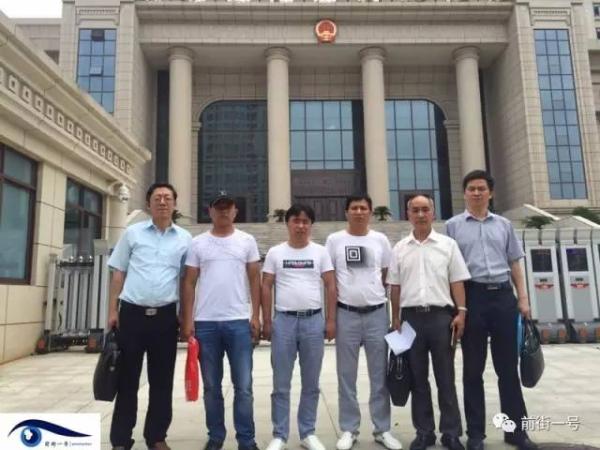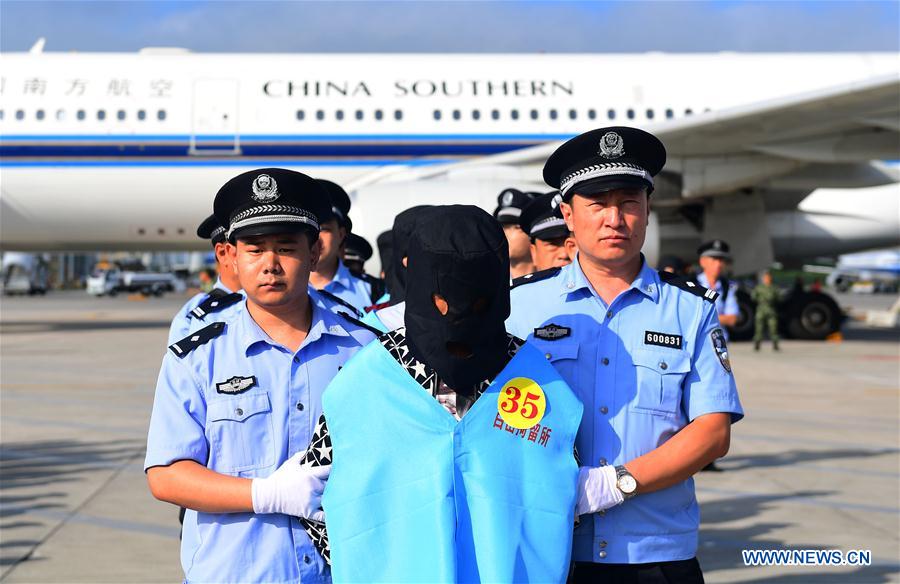A scanner magnifies a traditional Chinese painting by 200 times in an Artificial Intelligence Technology Center (AITC) in Beijing.
Based on big data technology, the machine is capable of recording the specific details of certain cultural relics. This can be used to tell fakes from originals.
The startup AITC in Yizhuang Economic and Technology Development area in the suburban Daxing district of Beijing was started in March by Hans Uszkoreit, scientific director at the German Research Center for Artificial Intelligence.
Uszkoreit said the center would focus on creating an AI service system and big data public technology platform. It will cooperate with companies that need the application of AI technology, such as JD.com, to make breakthrough in the fields of natural language processing and big data analysis.
Professor Uszkoreit and his company epitomize the foreign entrepreneurial rush in Beijing.
Beijing has hoped to attract more “elite foreigners” since it eased permanent-residence requirements in 2016. Twenty measures took effect on March 1, 2016, mainly targeting managerial-level professionals, Chinese born abroad, entrepreneurs and recently-graduated foreign students.
Zhongguancun, known in some quarters as “China’s Silicon Valley,” has offered permanent-residence certificates in China to more than 280 foreigners since 2016.
Jahangir Raza from Pakistan just graduated from North China Electric Power University. He is working in the capital as a service manager for Beijing Aeonmed and is getting his work visa in China.
He expects a lot from his future career, and says he decided to stay in Beijing because of the great opportunities here.
Yang Zhongwei, International Marketing & Sales Director of Beijing Aeonmed, said the company would like to hire overseas staff because they can become the strong link between overseas markets and Chinese companies.
From common entrepreneurs to Nobel laureates, an increasing number of foreigners see Beijing as an ideal place for their business ideas.
THOMAS Beijing Research and Development Center was founded in Beihang University this February. The center named after Professor Thomas C. Sudhof, a winner of the 2013 Nobel Prize in Physiology or Medicine, was jointly founded by the city of Beijing, Beihang University and Professor Thomas C. Sudhof.
Focusing on repairing central nervous system injuries, the center has a multidisciplinary advantage and undertakes research into many areas, including pathophysiology, biomaterial modification, preparation techniques and repairing neural injuries.
Nils Pihl, a tech CEO in Beijing, born in Sweden, moved to Silicon Valley and then New York, but founded a tech startup in Beijing.
He wrote an article for the Business Insider, an American news website, to explain why he chose Beijing for his startup. Pihl believes Beijing is great for innovation.
“Beijing offered us cheap housing and food, a network of experienced mentors that were happy to take the time to help, steady access to some of the world’s greatest engineering talent at a sixth of the cost of a junior engineer in Silicon Valley and access to a vast market of clients,” he wrote.
Though for Pihl it was never about costs alone.
“Beijing attracts large numbers of truly driven, creative and interesting people,” he wrote.


![People in southwest China's Chongqing Municipality take a form of an People in southwest China's Chongqing Municipality take a form of an 'ice bucket challenge' to beat the heat at a waterpark in, July 25, 2017. Many districts of Chongqing fell under a red alert for high temperatures, with air temperatures rising above 40 degrees Celsius in certain areas. [Photo: Chinanews.com]](http://images.china.cn/attachement/jpg/site1007/20170805/001fd04cf03a1aefc05401.jpg)